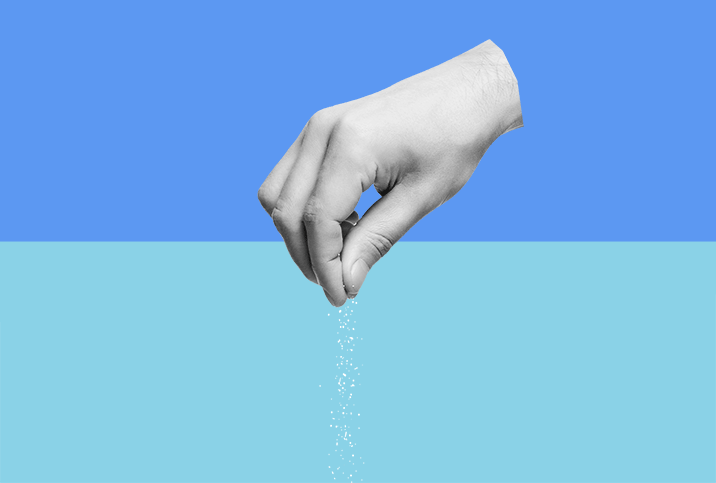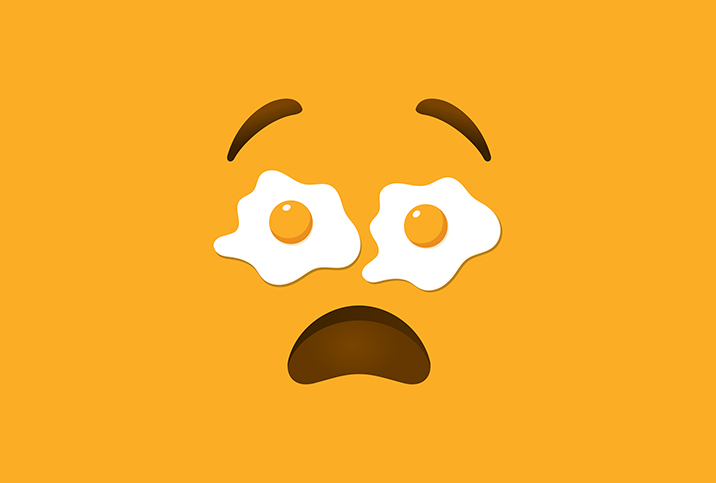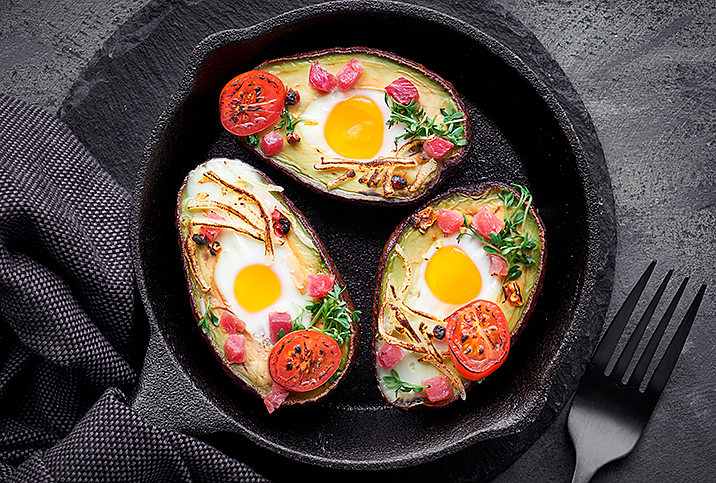Can You Eat Your Way to Happiness?

Depression is something many people experience to a degree. You may experience long-term conditions such as chronic major depression, bipolar disorder or dysthymia (chronic low-level depression). Sometimes, depression is situational, such as how you feel when you're adjusting to a breakup or a death in the family or to something as relatively minor as the arrival of winter.
These feelings are sometimes related to hormones, such as postpartum depression or premenstrual dysmorphic disorder.
Or you may experience days or weeks of malaise that come and go without you knowing why.
When depression does set in, the symptoms may look like the following:
- Changes in eating habits
- Difficulty sleeping
- Disengagement from and a lack of interest in your life
- Feeling worthless and wanting to give up
- Inability to focus
- Lacking energy
- Restlessness or anxiousness
Many things can help overcome a period of depression, from medications and therapy to reaching out to a friend for support. You may not rate it high on your radar, but nutrition is another way to support your mental health. What are the nutrition essentials for mental health?
"Good nutrition does not treat a mental health disease per se," said Sally Twellman, R.D.N., a functional nutrition coach in Austin, Texas. "It gives your body the chance to create the necessary neurotransmitters and hormones you need to have a healthy brain and more stable mood."
Unfortunately, cooking food at home takes skills many people don't have. So many steps go into eating well—deciding what to cook, making a grocery list, getting to the store, shopping, being able to pay the bill, cooking—and depression makes every one of those steps more difficult.
Whereas Grubhub is so easy.
What to eat to improve your mood
The Mediterranean diet is an effective and easy-to-follow diet to improve mental health, according to Twellman.
"It's a diet that's very plant-forward, including vegetables, fruit, nuts, seeds, beans and whole grains. That's the majority of the Mediterranean diet," Twellman said. "Next, it really focuses on seafood and lean, high-protein meat. It decreases highly processed foods and artificial flavors, colors and sweeteners, which have been shown to increase inflammation and blood sugar spikes, both of which impact our mood."
The Mediterranean diet emphasizes food inclusive of key nutrients for mental health, she added:
- B vitamins. When we don't have sufficient B vitamins, specifically B6 or B1 (thiamine), we can't create the neurotransmitters—serotonin and dopamine—we need for stable mood regulation. Folate (B9) and B12 help with the creation of neurotransmitters, and they also help build the structure of brain neurons.
- Omega-3 fatty acids. These maintain a strong, healthy brain structure and support and modulate the creation of neurotransmitters.
- Minerals. Zinc is used to modulate and create neurotransmitters. Magnesium is one of the most important cofactors in the body. It changes tryptophan to serotonin, and then serotonin to melatonin. It is also used to relax the body and regulate blood sugar.
- Fiber. This is the main food for our gastrointestinal (GI) bacteria. There is a connection between gut microbiome health and brain health. Eating enough fiber—three to five cups of a variety of vegetables, fruits and beans daily—helps support the GI bacteria, which decreases inflammation and supports brain health.
- Protein. This provides the amino acids necessary to build brain cells, neurons and neurotransmitters, including serotonin and dopamine.
How long before you feel a difference?
"Changing your diet can feel like a really heavy lift at the beginning," Twellman said. "But sometimes simply the act of doing something good for yourself—asking yourself, 'How do I nourish my mental health today, in this moment?'—can help people feel more empowered."
Twellman recommended giving it two weeks to a month to feel a difference. One caveat: If you're taking a magnesium supplement, you should start feeling the effects within a week.
Can you supplement your way to happiness?
Yes and no. Mostly no.
"What makes us healthy is not just individual molecules. There's a synergistic benefit to having the whole food," Twellman said. "Take green leafy vegetables, which are high in B vitamins, as an example. You need B6 to change tryptophan, an amino acid from protein, into serotonin. But you also need magnesium. Green leafy vegetables have magnesium. And they have fiber, which feeds your gastrointestinal bacteria. This improves the integrity of your GI tract, which decreases inflammation and improves brain health."
Supplements can be useful as a backup during difficult times or if you have trouble absorbing certain nutrients, Twellman noted. But food should always be your first choice.
What if you hate vegetables?
"There are many things that play into our food preferences," Twellman said. "One of them is our taste profile, and that's very much based on what we're used to."
The good news, of course, is that your tastes can change. Your taste buds turn over about every two weeks, so the things you don't like now will taste better over time.
"Another thing that goes into food preferences is our gastrointestinal bacteria. Gut bacteria grows based on what we feed it," she said. "If we have a high-sugar diet, the bacteria that grow thrive on high sugar and low fiber. Whenever they don't get the sugar they're looking for, they're like, 'Oh, what's happening? Send us some sugar!' Then we get those intense cravings for sugar and high-carbohydrate foods."
Twellman suggested looking at your cravings from both a biological and emotional standpoint.
From the biological side, if you eat three nutritionally balanced meals that include protein, fiber and complex carbohydrates, your blood sugar will be stable and you'll have fewer cravings.
"You should also learn to recognize emotional eating," Twellman said. "When I've met my nutritional needs and I get a little tap, tap, tap, to go eat more, I can ask myself what else I really need right now."
When all you want to do is eat comfort food on the couch, what can you do?
"It's really important for people to have a routine to organize their day, especially if they have depression," said Corinne Novella, L.C.S.W., a therapist specializing in Gestalt and somatic therapy in Brooklyn, New York. "I think the huge piece here is to plan for your own potential depressive episodes. Incorporate that into your understanding of yourself."
Novella recommended keeping a list of all your daily self-care practices.
"When people become depressed, self-care falls off," she said.
Novella said this can include the little things you need to do for yourself such as getting out of bed in the morning by a certain time, taking a shower and brushing your teeth, and remaining in contact with your support system.
"Nutrition is also on that list, and it's one of the hardest to keep up," she said. "Pick a couple of things you like to eat and keep those ingredients on hand so your energy doesn't have to go into wondering what you're going to eat."
Start small, Twellman recommended.
"Start with just breakfast. Can you eat a healthy breakfast every day? That's it. Then assess how that's going. If there were challenges, figure out how to address them," she said. "Try, fail, pivot, and try again."


















